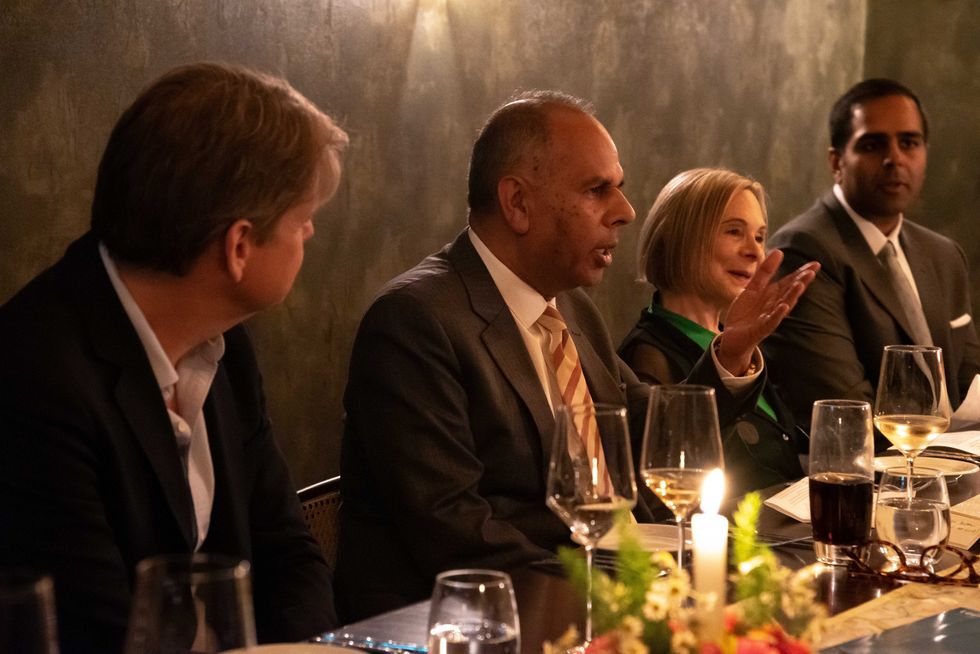A report by MPs has concluded that NHS “inaction” over more than a decade is resulting in unnecessary deaths among black, Asian, and minority ethnic transplant patients.
An inquiry into organ donation in the UK highlighted a “double whammy of inequity” faced by minority ethnic and mixed heritage individuals, The Guardian reported.
They are more likely to require donors due to being disproportionately affected by conditions like sickle cell and kidney disease. Yet, they are less likely to find suitable matches for blood, stem cell, or organ match on donor registers.
Finding a matching tissue type significantly improves the chances of successful treatment, particularly when compatible donors who aren't relatives share a similar ethnic background.
According to the inquiry report by the all-party parliamentary group (APPG) for ethnicity transplantation and transfusion, although there has been an increase in donors compared to previous years, only 0.1% of blood donors, 0.5% of stem cell donors, and fewer than 5% of organ donors come from minority ethnic or mixed backgrounds.
Consequently, individuals of white ethnicity are nearly twice as likely to secure a stem cell donor and 20% more likely to find a kidney donor.
The MPs' findings indicate that the likelihood of locating a suitably matched stem cell donor stands at 72% for white patients and only 37% for BAME individuals.
Additionally, within a year of being listed for a kidney transplant, 81% of minority ethnic and mixed-heritage patients are still awaiting a new kidney, while the figure stands at 65% for white patients.
Moreover, Black individuals are ten times more likely than their white counterparts to require type Ro blood, which has more restricted availability.
The inquiry uncovered a concerning absence of consistent and comprehensive ethnicity data in healthcare systems, which undermines accountability and poses a risk to the lives of individuals in need of life-saving treatments.
These profound discrepancies have persisted for some time. In 2010, the UK Stem Cell Strategic Forum outlined steps to address shortcomings in stem cell transplantation services, emphasising improved data collection.
However, the report highlights that the suggested measures from this initiative are yet to be entirely put into practice.
Jackie Doyle-Price, a Conservative representative in the APPG, emphasised the pressing need to address lower rates of donation in certain communities, highlighting the resulting disparity in outcomes for individuals requiring organs and stem cells.
“This must be tackled in order to save lives. Ministers need to show leadership to break down the practical and cultural barriers to progress.”
While Sarah Olney, the Lib Dem chair of the group, condemned over a decade of inaction, noting that services and communications predominantly catered to a white audience.
She stressed the unacceptability of this status quo, especially given the increasingly diverse population of the UK, with one in five being of mixed heritage or ethnic minority descent, rising to one in three among school-age children. “This has to change,” she said.
The report urges the government to designate a minister for transplant and transfusion inequalities, as well as an equality tsar, to mobilise initiatives.
Additionally, the report also recommends a ministerial review of all organisations involved in patients’ transplant and transfusion journeys.
The impact of families’ ability to challenge donors’ wishes, as per the 2019 legislation, on the volume of donations from mixed heritage and ethnic minority backgrounds should also be investigated.
In response to the findings, Habib Naqvi, the chief executive of the NHS Race and Health Observatory, expressed deep concern over the pronounced ethnic disparities in organ donor participation.
He emphasised the need for increased investment from healthcare providers and targeted campaigns aimed at raising awareness to foster trust in the healthcare system.
Jabeer Butt, the chief executive of the Race Equality Foundation, voiced strong dissatisfaction with the existing inequalities. Butt said every individual, irrespective of their ethnic background, deserves an equal opportunity to access life-saving transplants and donations when required.
“This is a solvable problem, but it requires a shared commitment to action across government, health organisations and communities. Lives depend on it,” he said.
A spokesperson from NHS Blood and Transplant appreciated the report, stating, “Recruiting Black heritage blood donors is the focus of our campaigns, partnerships, and community work. We’re pleased more people than ever before of Black African and Black Caribbean heritage are regularly donating,” she said.
The spokesperson also highlighted innovative approaches, like the blood group genotyping programme, as potential game-changers in providing well-matched blood, organs, and stem cells to patients. She said that such initiatives could significantly improve transfusion care for individuals with sickle cell and thalassaemia.


















 The event was hosted by Kalpesh Solanki, Group Managing Editor of Asian Media Group and President of the 100 Club.
The event was hosted by Kalpesh Solanki, Group Managing Editor of Asian Media Group and President of the 100 Club. 